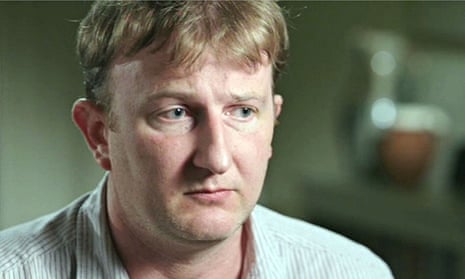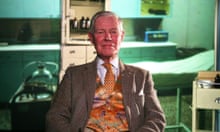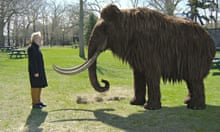What a curious, uncomfortable film The Paedophile Next Door (Channel 4) was, though I suspect that was largely the point. Historian and documentary-maker Steve Humphries made a convincing case for treating paedophiles before they offend, a radical solution to what he thinks is a problem far larger and more widespread than we can comprehend – let alone contain. In Germany, there is already a campaign to get inactive paedophiles to come forward for treatment. In the UK, paedophiles must offend before they have access to the same assistance. In a triumph of brave and considered logic, Humphries eventually concludes that this must be the better option: to acknowledge and prevent, where possible, rather than ignore, and then punish.
This was an admirably calm conclusion, but it took hard work to get there. Much of the hour-long documentary was dedicated to a broad overview of the history of paedophilia. Naturally, difficult to watch. Victims discussed, with horrifying candour, the abuse they had suffered as children, and the devastating effect this had on their subsequent lives. It was unsettling. It should be unsettling. There were inevitable lapses into sensationalist rhetoric, though, which undermined the more adult discussions taking place. “The truth is, they just seem like ordinary men,” went the voiceover, at one point, as if we were to expect conspicuous red eyes and devil horns. “Eddie … even became captain of the school rugby team,” said Humphries, as if a paedophile couldn’t possibly also be good at sport.
In fact the most remarkable part of the film, and the reason for its existence, was Eddie, who claimed to be a paedophile who had never abused children, and who wanted to be open about his sexual attraction to them, in order to raise awareness and get help. He argued that vilification was part of what drove paedophiles to offend. He said he didn’t want to be that way. We were told that he had been accepted on a treatment programme in Europe, and then he wrote a letter to his mother, “coming out” as a paedophile. In a film full of awful, upsetting scenes, this was, surprisingly, one of the most difficult to watch. (Sidenote: I bristled at “coming out” being so consistently applied as a phrase to describe paedophiles declaring their attraction to children. Especially given the tendency of some bigots to conflate homosexuality and child abuse. It felt clumsy.) Eddie’s story was grimly hopeful, in as much as it could be in a programme tackling such a devastating subject, but Humphries didn’t quite have the courage to make the whole programme about him. It was clearly the story to be told.
Over on Sky Arts, some light relief from Psychobitches, one of the best new comedies on TV last year, though given its tiny home, few people actually got to see it. It’s a sketch show set in a therapist’s office, in which famous (dead) women from history tell psychiatrist Rebecca Front their troubles. The first series was a knockout – Julia Davis played a wailing hybrid of Pam Ayres and Sylvia Plath; the Brontë sisters were foul-mouthed, filthy puppets obsessed with sex, and Sharon Horgan played a campy Eva Peron, who clung on to her bottles of “boobles”. It was silly, and odd, and very funny.
This second series is almost as good, though it feels more like a traditional sketch show and is slightly patchier, perhaps due to the sheer number of writers (I counted 12 on the credits for the first episode of this double bill, and seven on the second). In the best sketch, Kathy Burke and Reece Shearsmith play the Queen Mother and Princess Margaret as crude and grotesque, glugging down booze as Burke repeatedly rejects her on-screen offspring with delicious cruelty. Morgana Robinson joins the cast to play a sloppy Anna Nicole Smith – hers is a masterclass in physical comedy – and there’s a musical skit featuring Unity, Decca and Nancy Mitford, as imagined by Horgan, Samantha Spiro and Sophie Ellis Bexter. In a sketch the Mail has already called “hideous”, Michelle Gomez has gone from Doctor Who’s Missy to an even more terrifying villain, playing Thatcher as a Hannibal Lecter-style monster, incapable of love. It’s at its finest when it’s upsetting the establishment, and it relishes its naughtiness.
The second episode was less sharp. Perhaps, given its hyperactive pace, it works better in single doses. But I loved Horgan as Carmen Miranda – “Of course I’m on fucking drugs” – and Sheridan Smith as a mute Sleeping Beauty, whose endless sleep has an ulterior motive. And anything that gets Kathy Burke back on our screens, even for a few minutes, is well worth our attention.





Comments (…)
Sign in or create your Guardian account to join the discussion